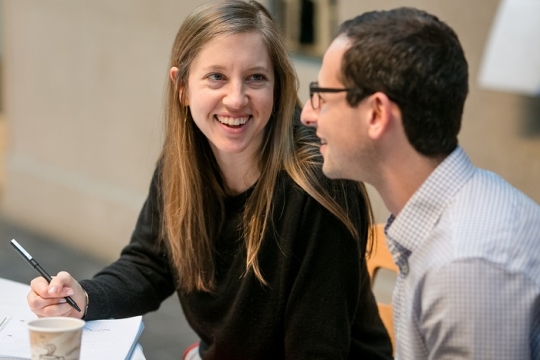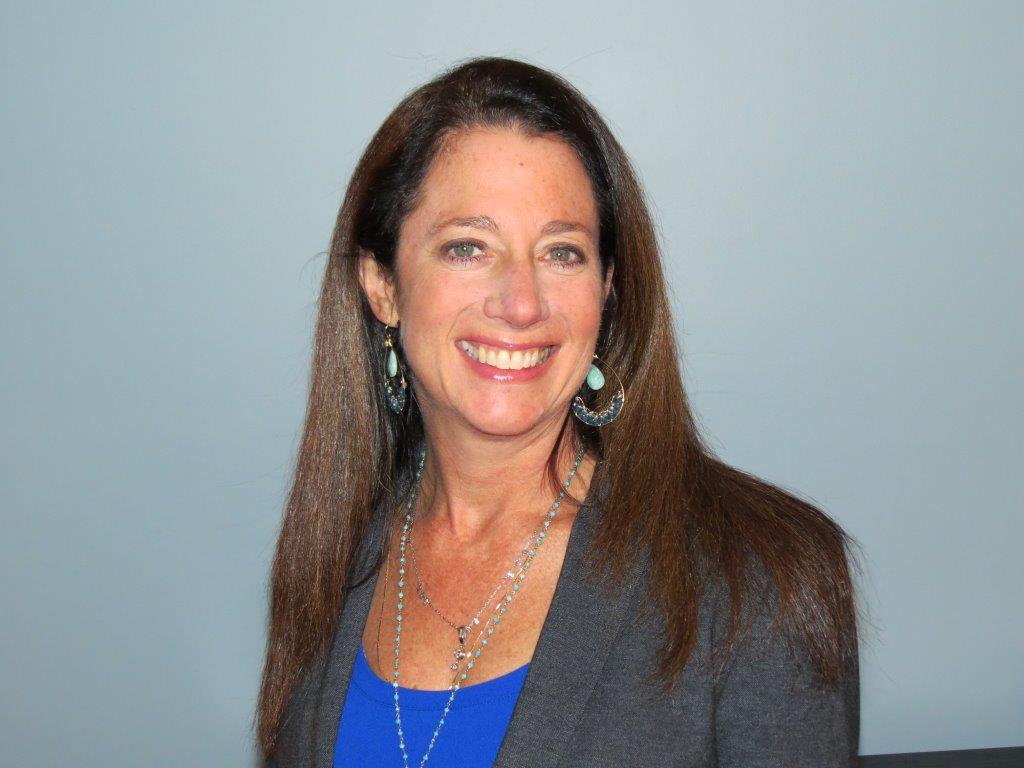
The Union for Reform Judaism’s Leadership Institute seeks to inspire sacred action in our congregations by supporting and working with congregational leaders throughout their leadership journey. Whether you’re new to leadership, a longtime veteran, or haven’t yet entered the leadership ranks, you can have an impact on your congregation.
Through our work, we have learned that there are four key concepts that all leaders – lay or professional, emerging or experienced – need to embrace.
1. Leadership is a set of behaviors, not a position.
As part of the URJ Scholar Series on Leadership, Marty Linsky, faculty member at the Harvard Kennedy School, teaches that leadership is a set of behaviors, not a position or role. In other words, leadership is a set of verbs, not a noun. Some of the behaviors in which leaders engage include listening to others, bringing people together for discussion, seeking consensus, creating shared vision and goals, and being nimble and flexible.
Change is the new constant, so leaders must continuously hone new skills to stay relevant and engaging and to meet the changing demands of their congregations. At the URJ, we strive to keep our finger on the pulse of innovation in the field of leadership development so we can help leaders strengthen the various behaviors and skills necessary for them to be effective and dynamic.
2. Leadership in congregational life is unique.
Congregational leaders are not only trying to run successful and sustainable institutions; they are also nurturing souls and building a spiritual home for their community, where people can grow. Therefore, while congregational leaders need to hone traditional skills such as planning, managing, budgeting and programming, they also need to master additional, distinctive skills.
Judaism centers our spiritual community, and so it is essential that congregational leaders learn to use Jewish texts and values in all aspects of their work. They should use these texts and values not only for learning, but also place them at the core of decision making, community-building, and mission development. Leaders must define their personal Torah of leadership – the values that guide their daily lives and express how they lead their congregation. Helping leaders understand their personal Torah of leadership is a priority in all facets of the URJ Leadership Institute.
3. Sacred partnerships are imperative in building a congregational community.
Congregational leaders are blessed to work with sacred partners who come together for the sake of the community. Just as Moses had Aaron and Miriam to help shoulder the responsibility, congregational leaders have partners on whom they can rely. A congregation’s size, structure, culture, and the leader’s specific role will determine the best partners from among staff members, lay leaders, and congregants who are not yet holding leadership positions. Sacred partners can even come from other congregations and organizations.
However, sacred partnerships don’t just happen; they must be built on a foundation of trust and shared expectations. Like a garden, these relationships must be cultivated so they don’t wither and fade away. Learning about one another (both personally and professionally), understanding each other’s leadership styles, and working on joint goals to create the best opportunities for success all require time and cannot be rushed.
4. A network of support is critical to leadership development.
Learning is more powerful when done in a supportive network. Learning can come from an expert in the field, but also from congregations that have experimented and found success or have encountered setbacks. At the URJ, we have seen that “one-to-many” consulting and learning can be more effective than in one-on-one settings. Therefore, in our leadership development programs, congregations support one another in their work.
For example, relationships among presidents grow organically into a network of support as they learn from one another as participants in the Scheidt Seminar for Congregational Presidents and Presidents-Elect. The seminar is only the catalyst of long-term relationships among presidents across North America. The URJ Communities of Practice are another example of congregational leaders supporting one another in experimentation and learning. Through these and other programs, we see how a network of support can effect congregational leaders across North America.
With these key concepts as a foundation, the URJ Leadership Institute provides ongoing, innovative opportunities for leaders to learn, grow, and strengthen their skills and talents. Each year, we evaluate and revise the Scheidt Seminar, now in its chai year, to ensure that it continues to help congregational presidents meet their demanding, ever-changing responsibilities. The Scholars Series allows congregational leaders – volunteer and professional, emerging and veteran – to consider important ideas and to think strategically. These and other URJ programs help position leaders at the cutting edge, from where they can guide their congregations – and North America’s Jewish community – nimbly through the uncharted waters of the 21st century.
The Scholar Series Resource, the newest URJ Leadership Institute publication, is now available for download in The Tent.
Have something to say about this post? Join the conversation in The Tent, the social network for congregational leaders of the Reform Movement. You can also tweet us or tell us how you feel on Facebook.
Related Posts

Setting Your Leaders Up For Success

Civil Discourse – How to Facilitate Productive Conversations about Hard Topics

